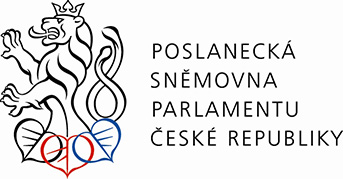The Parliament of the Czech Republic is a bicameral body established on 1 January 1993 following the dissolution of Czechoslovakia. It consists of the Chamber of Deputies (the lower house) and the Senate (the upper house). Elections for both chambers of the Parliament of the Czech Republic are held according to the Constitution of the Czech Republic by secret ballot on the basis of universal, equal and direct suffrage. Every citizen of the Czech Republic aged 18 years or over, who has legal capacity, can vote in the parliamentary elections.
The Chamber of Deputies of the Parliament of the Czech Republic was formed on 1 January 1993 by transformation of the Czech National Council. The Chamber of Deputies consists of 200 Deputies elected for the period of four years. For elections to the Chamber of Deputies, the Constitution lays down an electoral system based on proportional representation.
The first elections to the Senate were held in November 1996 and the Senate started its activity at its constituent meeting on 18 December 1996. The Senate has 81 Senators elected for six years. The Senators are elected under the principles of the majority system. One third of the Senate is re-elected every two years. Therefore, the Senate is a permanent institution, it cannot be dissolved and its activity is uninterrupted.



